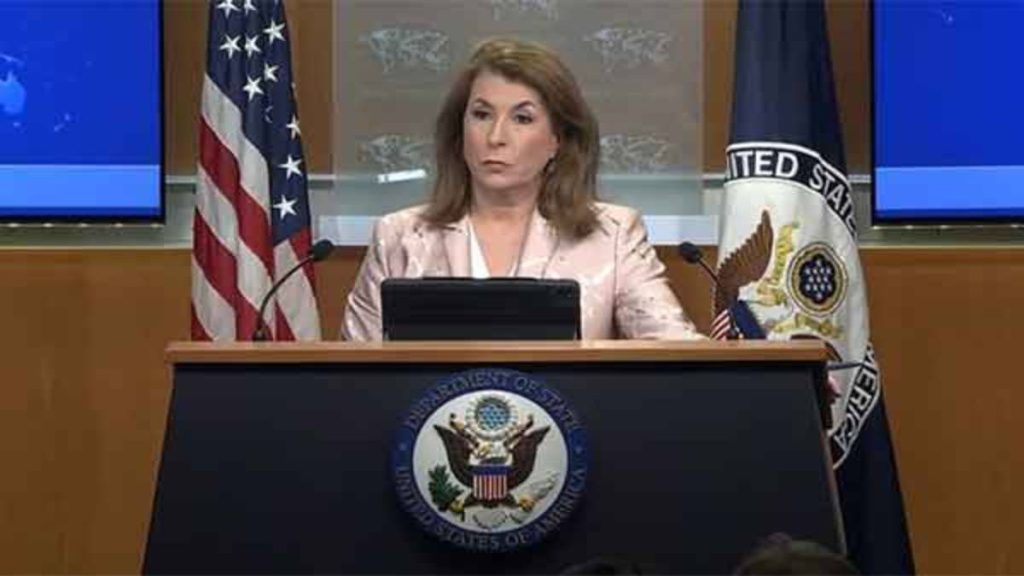In the aftermath of the deadly terror attack in Pahalgam, Jammu and Kashmir, the United States has said it is closely monitoring the situation and is actively engaged with both the Indian and Pakistani governments to de-escalate rising tensions.
Speaking at a press briefing on Wednesday, US State Department spokesperson Tammy Bruce confirmed that Secretary of State Marco Rubio will speak with the foreign ministers of India and Pakistan “as early as today or tomorrow” to discuss the evolving situation.
“We are in touch with both governments at multiple levels and are encouraging all parties to work towards a responsible solution,” Bruce stated. She emphasized that the US is urging both nations to avoid escalation, noting that the world is watching the developments closely.
The US response comes after Pakistan-sponsored terrorists launched a brutal attack in Pahalgam on April 22, killing 26 people—mostly tourists—and injuring many others. The incident has led to a sharp deterioration in bilateral relations.
In response to the attack, India has initiated a series of strong countermeasures. Prime Minister Narendra Modi chaired a high-level security meeting attended by Defence Minister Rajnath Singh, NSA Ajit Doval, and the service chiefs. Government sources said PM Modi reaffirmed India’s resolve to crush terrorism and granted the armed forces full operational freedom to determine the response’s timing and nature.
Significantly, India has put the 1960 Indus Waters Treaty in abeyance, expelled Pakistani High Commission officials declared as persona non grata, and revoked visa privileges under the SAARC Visa Exemption Scheme. Pakistan has been ordered to vacate its diplomatic presence within 48 hours.
The US has not commented directly on India’s countermeasures but reiterated the need for diplomacy and restraint. Bruce added that Secretary Rubio has also encouraged other international leaders to reach out to both India and Pakistan to help prevent further escalation.
Would you like a shorter or more policy-focused version of this article?
